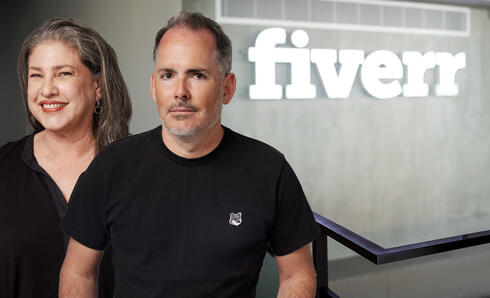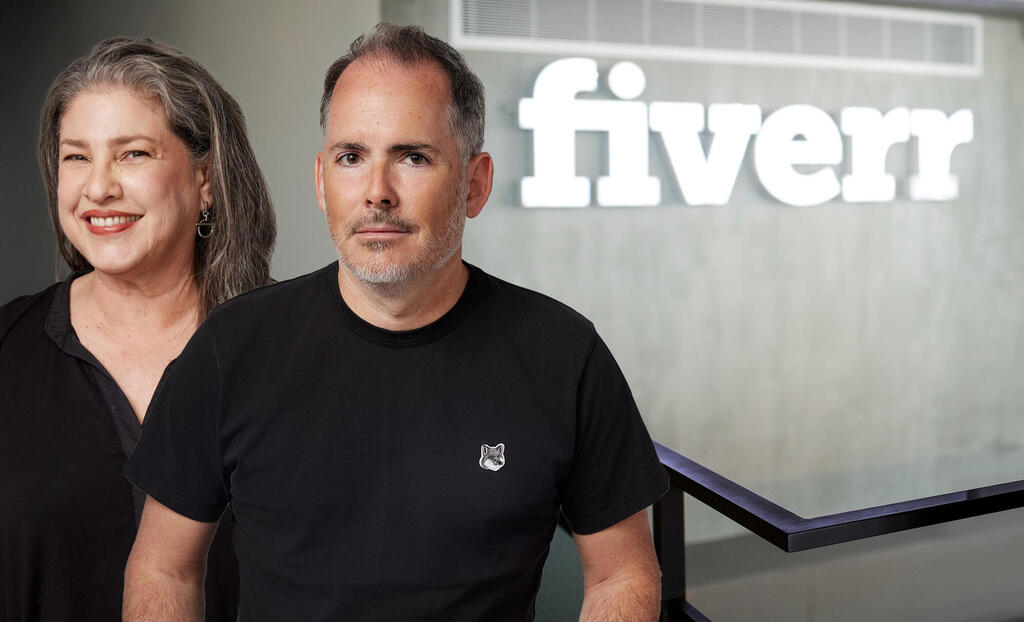
AI is coming for your job—but that’s a good thing, says Fiverr CEO
Micha Kaufman on automation, talent, and why creativity is the final frontier. “The AI revolution isn’t just changing how we work—it’s changing what it means to be an employee. At this pace, a job could be obsolete before you even learn how to do it,” noted Sharon Steiner, Fiverr's Chief HR Officer and Chief Freelance Officer.
Micha Kaufman, CEO of Fiverr, published an optimistic post last week about the arrival of artificial intelligence—marking a notable change in tone from a previous letter to employees, in which he warned that AI was coming to take their jobs, and possibly his as well.
In that earlier letter, Kaufman urged employees to "wake up" and outlined steps they must take to stay relevant in the AI age. But after a round of internal conversations, his latest post offers a more balanced perspective. AI is not just a threat, he now argues, but a tool with limitations—and what ultimately sets companies apart will be people, especially top talent.
At the same time, Fiverr recently launched Fiverr Go, a tool that allows freelancers to create AI agents that mimic their style in order to replicate their work. The goal is to help freelancers manage dozens of clients simultaneously by automating parts of their workflow. But the obvious question looms: Will this tool eventually replace the freelancers it’s supposed to help?
We spoke with Kaufman and Sharon Steiner, Fiverr's Chief HR Officer and Chief Freelance Officer, about what happens when AI replaces many of the functions currently performed by humans, whether freelancers themselves are at risk, and what it takes to stay relevant in a rapidly shifting job market.
"Humans Must Rediscover Their Value"
In your first letter to employees, you painted a worrying picture and recommended action to stay ahead. But in your latest, more optimistic post, you mentioned implementing AI-enabled workflows. What does that actually mean in practice?
Kaufman:
“I think we are in a very, very exciting time, but there are many scary aspects to it. What’s scary is mainly how fast the world is changing—and humans don’t respond well to change. This requires us to reinvent ourselves, how we work, and how we define our value. But what’s exciting is exactly our ability to rediscover our humanity.
“In a utopian world, I’d want every one of our employees, and also every freelancer on our platform, to use automation and technology to replace 100% of what they currently do. Now, you might say: if I replace everything I do, then you don’t need me. But I think the opposite is true—because now I have all of your time for the things people are uniquely good at: creativity, intuition, original ideas that ChatGPT can’t generate. I don’t need anyone to do manual tasks—just like when Excel was invented, there was no advantage to being the accountant who kept doing calculations on paper.”
So is AI coming to take your job or not? You’ve said both.
Kaufman:
“If I can’t free up more of my time to focus on what makes me uniquely valuable—and I continue doing tasks that AI already does better—then yes, I’m in trouble. Because there will be others who can do my job better.”
“AI gives everyone superpowers. But here’s the catch: if everyone has the same tools, what makes you stand out? The answer is always the same: competitive advantage. The missing ingredient. That human delta. In the end, it’s human nature—we will always seek the edge that puts us ahead of the rest.”
The Future as an Attention Deficit? No—It’s a New Normal
Sharon Steiner joined Fiverr 13 years ago, during the rise of the gig economy—another major labor market disruption. She had no defined role at the time, just a strong belief in the vision.
Steiner:
“I met Micha by chance and was really excited about the gig economy. Coming from a traditional work background, I saw something truly disruptive here. I joined without a title, without a role—I just knew I wanted to be part of this. Since then, I think we’ve already gone through at least three labor market revolutions, and the pace of change in the last five years is insane.”
So what trends are you seeing today, especially from your vantage point as CHRO and Fiverr’s Chief Freelance Officer?
Steiner:
“One of the clearest trends is the increasing blurring of the lines between employees and freelancers. Today, many of our employees are also working on side projects—startups, freelance gigs, independent ventures. It’s not rare anymore. It’s a lifestyle, and it will only grow.
“Gen Z isn’t satisfied with one linear career. Even my own kids live like this: in the future, everyone will have three ‘windows’ open at once—one for earning, one for learning, and one for ethical or community action. This isn't an attention deficit—it’s reality.
“And while promotion used to mean climbing upward into management, future career growth will be lateral. People will shift fields every three to five years, build broader skills, and deliver higher-quality work with fewer mistakes.
“The AI revolution isn’t just changing how we work—it’s changing what it means to be an employee. At this pace, a job could be obsolete before you even learn how to do it.”
New Jobs, New Tools, New Mindsets
Are you seeing specific roles vanish or emerge?
Steiner:
“Yes. Prompt engineering is a major emerging field. Many content writers and journalists are transitioning into it. Publishing is also being disrupted—writers can now get editing, proofreading, and even illustration bundled and delivered fast.
“Graphic design is also evolving quickly. Some roles will vanish. Others will morph. Freelancers are more naturally inclined to adapt, because their market competitiveness depends on it. For salaried employees, that urgency is less obvious. Micha’s letter was meant to shake people up—to get them to define their market value.
“The pace of change from AI requires everyone to adapt quickly. As employers, we have to be transparent, and help people connect to the urgency of the moment. But it also puts responsibility on employees—to update, evolve, and acquire new AI skills.
“Micha’s letter was a call to action: don’t fear change—embrace it as your advantage. The future forces us to redesign employee roles around humans. Yes, some jobs will disappear. But new roles will emerge—ones that demand creativity, critical thinking, and mastery of advanced tools. Those who evolve will become assets to any company.”
Fiverr’s Bet: AI Will Create More Work Than It Destroys
One profession clearly at risk is content writing—especially freelance writers on Fiverr, who are vulnerable to replacement by AI. But Kaufman isn’t fazed.
Kaufman:
“Do you know how many service categories have gone extinct on our platform? Hundreds. So what? Hundreds of new ones have emerged thanks to technology.”
Can you give some examples?
Kaufman:
“You and I don’t even know what those new roles will be two years from now. Data labelers, AI agent developers—those didn’t exist recently. Entire content categories are booming. I don’t know the names of the jobs of the future—but I do know you’ll see them first on Fiverr.”
Will Fiverr still be relevant in two years?
Kaufman:
“Absolutely. Fiverr will remain dynamic. Every new profession, every new field—you’ll find it first here. We’re agile. We’ve shown we can develop 30 or 50 new categories in a single quarter. As long as that continues, Fiverr is fine.”
Fiverr Go: Empowering or Replacing Freelancers?
Let’s talk about Fiverr Go. However you frame it, it seems like this product risks replacing freelancers.
Kaufman:
“No. Fiverr Go is meant to counter AI exploitation. Take a graphic designer who posts their work online. AI scrapes it, learns from it—but the original creator gets nothing. With Fiverr Go, the AI learns only from that freelancer and doesn’t pass the learning on to others.”
“The goal isn’t to replace creativity—it’s to free people up to do what they love and excel at: create. It helps them spend less time on admin and more time making.”
So who’s responsible for ensuring workers—freelancers or employees—remain relevant?
Kaufman:
“When it comes to freelancers, the answer’s obvious: it’s on them. But really, it’s on every individual, regardless of how they’re employed. Organizations are motivated to help, sure—but it’s not their job.”
Kaufman:
“The primary responsibility lies with each professional to upskill. I can’t replace that. If someone won’t spend nights learning AI tools, becoming a master of them, that’s on them. As an organization, we’ll help where we can—but it’s driven by self-interest. We want more efficient employees. But the market is large, and I have options. That hasn’t changed because of AI.”














